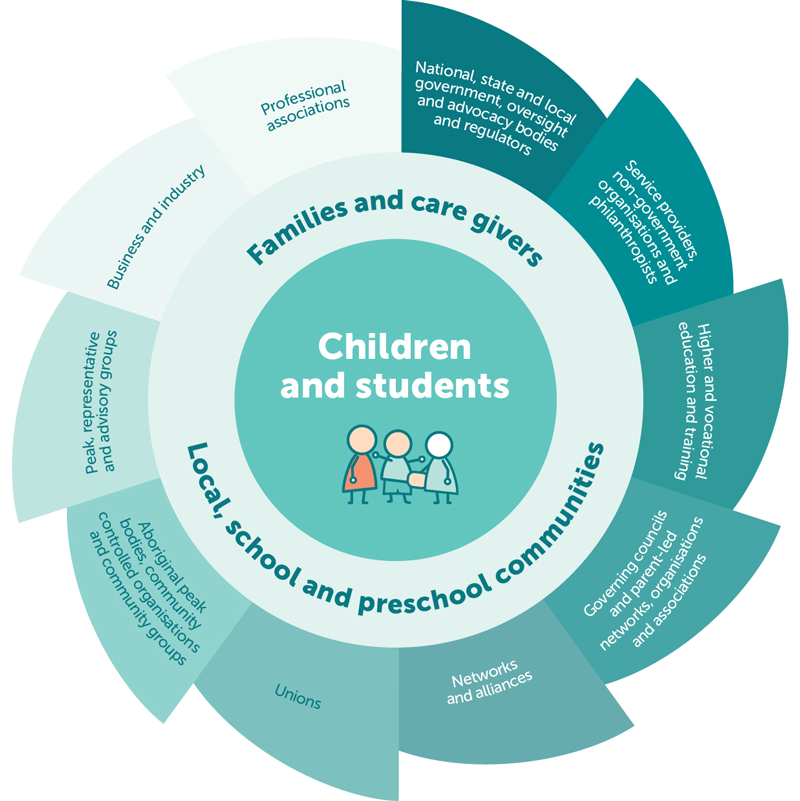On this page
The department’s Stakeholder Engagement Framework (PDF 214 KB) outlines our commitment to stakeholder engagement to support our purpose of children and students learning and thriving. The framework sets out the why and how we work with our stakeholders to make department-level decisions that support our purpose of children and students learning and thriving.
Our stakeholders
Our stakeholders are our learners, families, communities and supporting organisations who share our collective responsibility for building an interconnected, world-leading public education system.
The diagram shows our stakeholders:

At the centre are children and students.
Surrounding the inner circle are families and care givers and local, school and preschool communities.
The outer circle is split into 10 segments for our various stakeholder groups:
- professional associations
- national, state and local government, oversight and advocacy bodies and regulators
- service providers, non-government organisations and philanthropists
- higher and vocational education and training
- governing councils and parent-led networks, organisations and associations
- networks and alliances
- unions
- Aboriginal peak bodies, community controlled organisations and community groups,
- peak, representative and advisory groups
- business and industry.
Why we engage
Our Strategy for Public Education outlines the importance of working in partnership with our learners, families, communities and organisations to build, strengthen and support the relationships needed to achieve impact.
We engage to:
- create agency and pursue equity
- accurately identify and understand issues and opportunities
- hear diverse perspectives on issues facing public education in South Australia
- design and deliver policies, programs and services that work for those they affect
- ensure that those who have a stake in our work, contribute to, understand and support that work.
How we engage
We apply an open, collaborative and considered approach to engagement, in line with the South Australian Government’s Better Together: Principles of Engagement and underpinned by the International Association of Public Participation (IAP2) Spectrum of Public Participation.
Our approach to engagement reinforces the guiding principles set by our Strategy for Public Education.
How stakeholders can get involved
Engagement opportunities will depend on the approach taken for each policy, program, project or other initiative.
Some of the ways you can engage as a stakeholder might include:
- feedback on policies open for consultation
- the yourSAy website
- stakeholder forums, such as governing council forums
- participation in professional associations, such as Educators SA, South Australian Secondary Principals Association or South Australian Primary Principals Association.


